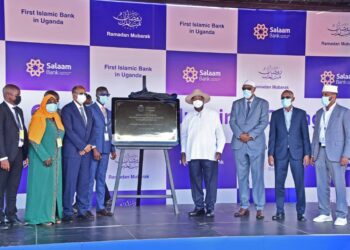“It’s not enough that we have technological capability at our fingertips. We have to get technology into the hands of local partners and program participants” said Catholic Relief Services Humanitarian Response Vice President, Jennifer Poidatz, marking the focus on practical applications, how technology can empower, and partnerships at the 11th conference on Information and Communications Technology for Development (ICT4D) in Kampala, Uganda.
The first day of the largest edition of the Conference to date globally drew to a close on Tuesday, with over 900 attendees from over 85 countries and 440 organizations.
Vincent Bagiire, the Permanent Secretary, Ministry of Information and Communication Technology and National Guidance of The Republic of Uganda, opened the conference, drawing special attention to Digital Uganda Vision and praising the international development community for using ICT4D for improving the lives of those in need.
“This conference is important and relevant to us as a country as we are getting an opportunity to share knowledge and learn from experts implementing ICT across the country. Over time, we expect to see increased solutions in our daily lives from the use of ICT,” he noted.
Further showing the importance of the conference to Uganda, during the opening plenary session Peter Batali, Co-Founder & Executive Director of CTEN-Uganda, addressed participants on the refugee response in Uganda. He highlighted how ICT challenges were overcome in the camps through strengthening existing and forming new strategic partnerships with the Uganda ICT Ministry, tech giants and development actors and the use of holistic advocacy for use of faster/reliable fibre network in refugee hosting areas.
Lauren Woodman, CEO of NetHope highlighted that most non-profits have digitized their back office processes, but haven’t necessarily gone digital yet to empower people to experiment, release and constantly enhance digital offerings. She recommended that digital nonprofits start with changing the way people work, through redesigned processes, made possible by technology.
The results from a survey of 600 development professionals conducted by Catholic Relief Services (CRS) and Devex were shared, with 47% of respondents identifying Asia as having the most rapid growth in ICT4D, with 33% of respondents identifying Africa as a growth region. When it comes to the democratization of technology the survey results showed only 24% of organizations identified program participants as primary users of ICT4D, and partners 14%. The work to increase these numbers will begin over the coming days in Kampala.
Over the coming two days, ICT and development professionals will hear from scores of speakers on leading technology issues like artificial intelligence, use in agriculture, safeguarding, financial inclusion and more.
Do you have a story in your community or an opinion to share with us: Email us at editorial@watchdoguganda.com











